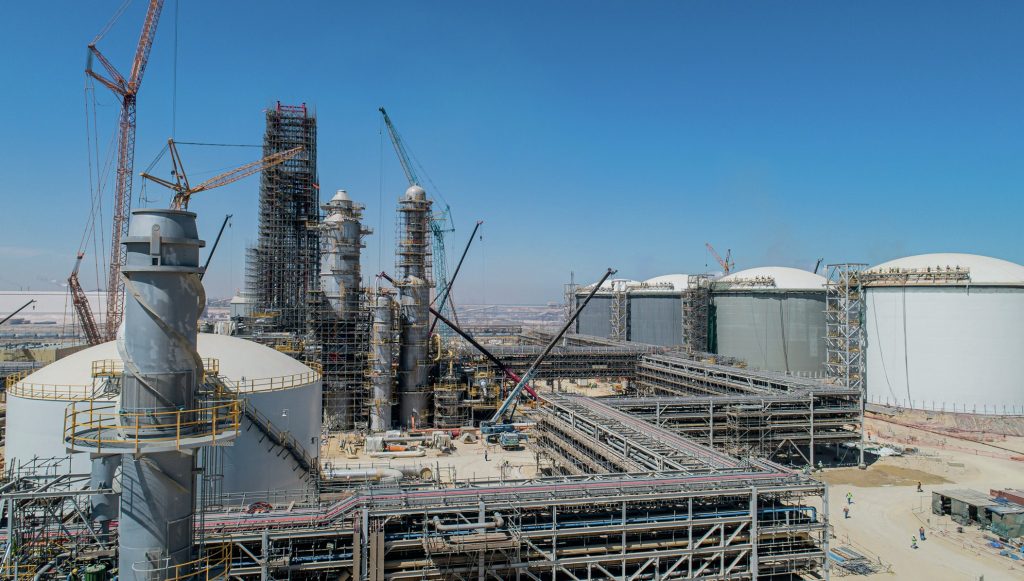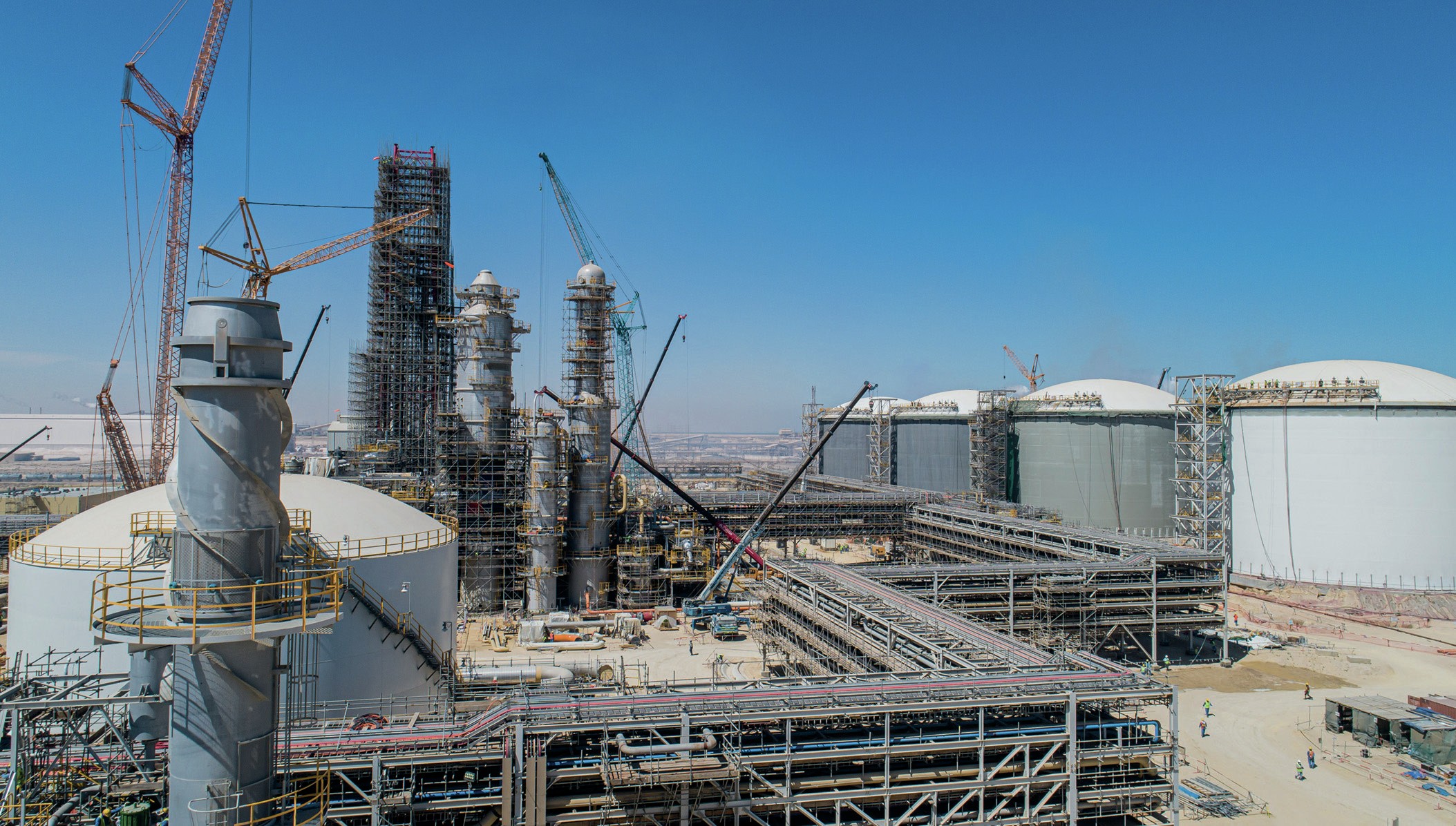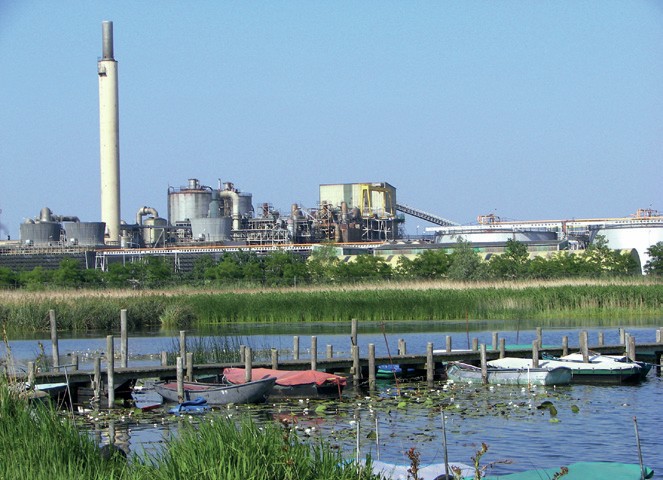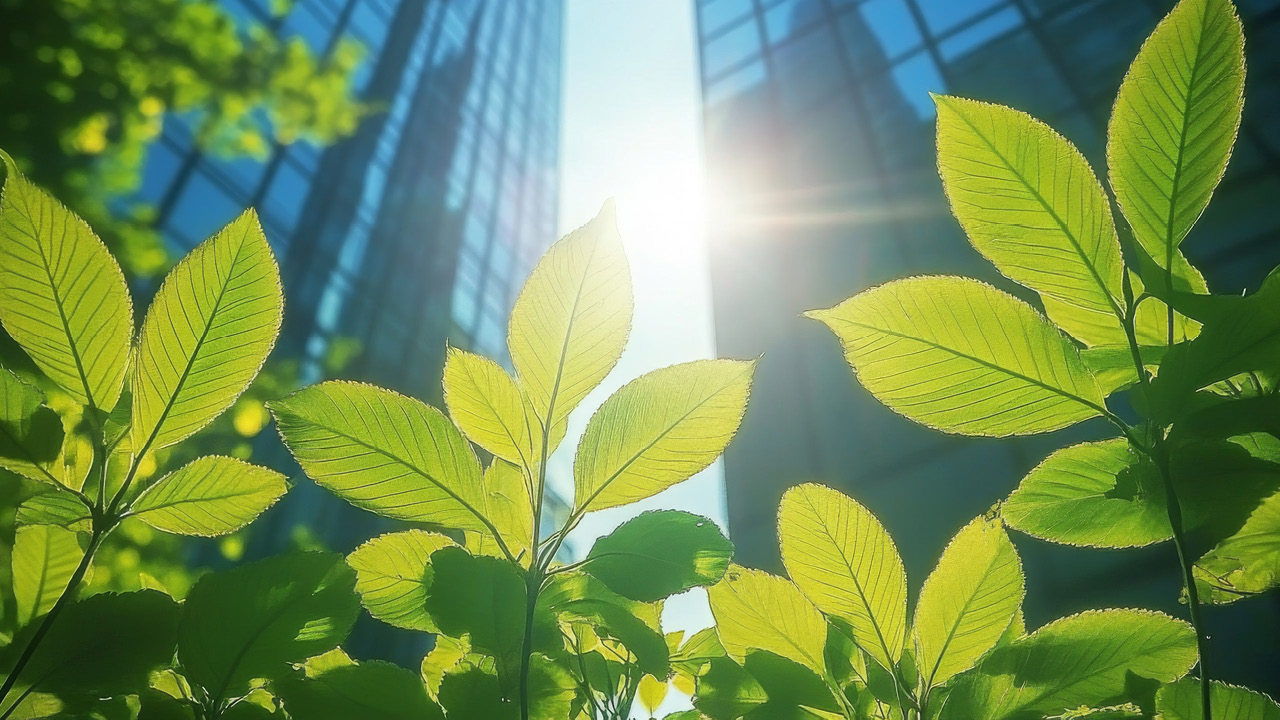Sulphur 402 Sept-Oct 2022

30 September 2022
Sulphuric Acid News Roundup
SAUDI ARABIA
Copper smelter for Ras Al-Khair
Saudi Arabia’s Ras Al-Khair Industrial City has signed an industrial land agreement with local firm Gulf Copper to develop a copper smelting and casting plant at an investment $319.30 million. The project would be developed on a plot spanning more than 250,000 square metres in the industrial city. No construction timelines were given. The Saudi government has previously signed agreements with Trafigura and Saudi-based Modern Mineral Holding to develop a 400,000 t/a copper smelter at Ras Al Khair which would also include 200,000 t/a of zinc and 55,000 t/a of lead smelter capacity at a projected cost of $2.8 billion.
Ma’aden to double phosphate and ammonia exports to India
The Saudi Mining Company (Ma’aden) has signed four memoranda of understanding with Indian fertilizer partners which would collectively double exports of phosphate products and ammonia to India, beginning in 2023. Saudi Arabia’s Minister of Industry and Mineral Resources Bandar Alkhorayef and India’s Minister of Chemicals and Fertilizers Dr. Mansukh Mandaviya attended the signing. Robert Wilt, CEO of Ma’aden, said the company exported about 1.7 million t/a of phosphate products and ammonia to the Indian market, and that the two nations were natural partners due their geographical proximity. Ma’aden is developing a third large-scale phosphate project which aims to increase the company’s phosphate fertilizer supply capacity by 3 million t/a to 9 million t/a over the coming years, with the first phase to be complete in 2025. The $6.4 billion complex is being constructed at the Ras Al-Khair industrial city.

DEMOCRATIC REPUBLIC OF CONGO
Metso Outotec to deliver equipment for copper mine
Kamoa Copper SA has selected Metso Outotec to supply key concentrator plant equipment to the company’s copper mining complex expansion in the Democratic Republic of Congo. The value of the order, which is not disclosed, has been booked in Minerals’ Q2/2022 orders received. Metso Outotec’s scope of delivery consists of Planet Positive processing equipment, including energy efficient HIGmill™ regrind mills with polyurethane wear linings. The delivery also includes Larox® concentrate filters and TankCell® flotation cells for the efficient recovery of valuables.
“One of the key missions for Kamoa Copper S.A. is to implement low-carbon technology to advance sustainable production of copper. Metso Outotec’s Planet Positive offering supports our customer’s ambition, allowing us to be a true partner for positive change,” says Charles Ntsele, Vice President, Minerals Sales for Metso Outotec in Africa.
UNITED STATES
Sulphuric acid from carbon sequestration
Technology start-up company Travertine has launched its process to remove carbon dioxide from the air and sequester it permanently, while also making sulphuric acid. The company says that its aim is to leverage the sulphuric acid to develop applications for fertilizer production and to recover critical elements from mines to help advance the transition to renewable clean energy.
The proprietary electrochemical process involves recovering sulphate waste generated from industry and recycling it into sulphuric acid. The calcium and magnesium in the sulphate are reacted with CO2 in the air, resulting in generation of carbonate minerals to sequester the carbon. Carbonate minerals, found in limestone, marble, and cement, can sequester carbon over a period of tens to hundreds of millions of years.
“By converting CO2 from the air into a mineral we permanently sequester it in a way that mimics the way the earth sequesters it. And in regenerating sulphuric acid from sulphate waste, we avoid accumulation of that waste, eliminating water and soil pollution, while continually recycling and reusing it,” said Laura Lammers, Travertine founder and CEO and former University of California, Berkeley professor. The company spun out from her lab work at Berkeley involves exploring carbonate mineralisation as an energy-and cost- efficient way to reduce the environmental impact of critical mineral extraction. “We believe our process can help facilitate extraction of critical elements for decarbonization. And that it can help ensure extraction industries are as environmentally responsible and sustainable as possible while providing both mining and fertilizer companies an efficient, cost-effective way to deal with their waste. They currently pay billions in waste management.”
The company recently secured $3 million in seed financing, led by Grantham Environmental Trust and Clean Energy Ventures, to expand its team and build a pilot plant in Boulder. Colorado. Travertine is building a pilot at its facility in 2022 and is working toward building a demonstrator 1 t/d CO2 sequestration unit at a partner mine site, with operations beginning in early 2024.
Travertine is partnering with fertilizer producers to recycle phosphogypsum to make calcium carbonate products that can be sold as components of green cement, as well as to make green hydrogen. Further out, the aim is to build facilities in partnership with existing major users of sulphuric acid, as well as mine sites under development in the US, that will need large volumes of sulphuric acid.
INDIA
New sulphuric acid plant commissioned
Amal Ltd says that its newly incorporated subsidiary, Amal Speciality Chemicals Ltd (ASCL) has successfully commissioned a new sulphuric acid plant in Ankleshwar, Gujarat province. The plant has a capacity of 300 t/d, and features a zero liquid discharge facility. Amal Ltd is a chemical firm that manufactures and markets sulphur-based products, including oleum, sulphuric acid, sulphur dioxide and sulphur trioxide.
JAPAN
Wind powered sulphuric acid carrier
Japanese shipping firm Mitsui OSK Line plans to launch a wind-powered bulk carrier in 2024 for US wood pellet producer Enviva, as it continues to strive to reduce greenhouse gas (GHG) emissions from the shipping sector. MOL has signed a contract with Japanese shipbuilder Oshima Shipbuilding to build the vessel, which is equipped with a hard sail system, known as a wind challenger, following an initial agreement with Enviva to transport wood pellets in a cleaner supply chain. The new ship will be MOL’s second wind-assisted vessel following a wind-powered coal carrier for Japanese utility Tohoku Electric Power. The wind challenger technology can convert wind energy into propulsive force using a telescoping hard sail. This is expected to cut a vessel’s GHG emissions by around 5% on a Japan-Australia voyage and by around 8% on a Japan-North America west coast voyage, compared with the same type of vessel without the hard sail system.
Japanese copper producer JX Nippon Mining & Metals (JX) is also planning to introduce a rotor sail system to a Supramax bulk carrier to cut emissions. JX’s group company Pan Pacific Copper has signed an agreement with Australian iron ore producer BHP and Finnish engineering firm Norsepower for decarbonisation for international shipping. The companies plan to equip the system to the Koryu combination carrier that carries copper concentrates and sulphuric acid sometime during July-September 2023. The vessel is operating between Chile and Japan, carrying about 150,000 t/a of copper concentrates and 100,000 t/a of sulphuric acid.
NETHERLANDS
Zinc smelter to halt production

Nyrstar, part of the Trafigura Group, has announced that the Budel zinc smelter in the Netherlands will be placed on care and maintenance “until further notice” from September 1st due to high energy prices across Europe. Zinc prices on the London Metal Exchange rose by 7.2% on the news. Glencore has also warned that Europe’s energy crisis poses a substantial threat to the continent’s zinc supply. Smelters across the region are barely turning a profit and the Nyrstar plant, which accounts for about 2% of global output, has been operating at a reduced rate since the fourth quarter of last year.
KUWAIT
Acid supply tender delayed
Two contracts tendered by state-owned oil companies in Kuwait have been delayed due to ongoing political deadlock in the country. One of the contracts includes the construction of two new electricity substations and associated power lines in the north of the country, and the second covers the supply of sulphuric acid to refineries operated by the Kuwait National Petroleum Company (KNPC). Many projects and contracts in Kuwait’s oil and gas sector have seen significant delays over the past three years due to a stand-off between the government and the elected parliament over fiscal reform. In August Kuwait formally dissolved parliament as the crown prince moved to resolve the stand-off. Parliamentary elections are now expected in October. Parliament has yet to approve the state budget for 2022-23.
CANADA
Chemtrade Logistics reports 2Q 2022 results
Chemtrade Logistics has announced results for the three months ended June 30th, 2022. Revenue for the quarter was $446.4 million, an increase of $109.1 million or 32% year-on-year, reflecting improvements in both operating segments. Net earnings were $34.8 million, an increase of $48.9 million year-on-year. Scott Rook, President and CEO of Chemtrade, said: “We are very pleased with our performance during the second quarter of 2022. Chemtrade continues to capitalise on strong market fundamentals across the majority of our product portfolio… we also continue to take steps to ensure the momentum we are generating in the business continues for years to come. In particular, we are excited about our recent announcement of a joint arrangement with Kanto Group to further strengthen Chemtrade’s position as the leading manufacturer of ultrapure sulphuric acid in the North America market. Demand for ultrapure sulphuric in the US is expected to show significant growth, driven by new investments in the semi-conductor industry.”
Adjusted EBITDA includes the sale of the company’s specialty chemicals businesses in 4Q 2021 and the sale of an idled Augusta, Georgia sulphuric acid plant during the second quarter of 2022 for cash proceeds of $10.0 million.
The company’s Sulphur and Water Chemicals (SWC) segment reported revenue of $269.5 million for 2Q 2022, up from $213.8 million in 2Q 2021. Adjusted EBITDA in the segment was $54.8 million, similar to 2Q2021. The increase in SWC revenue was primarily due to higher selling prices for merchant acid, water solutions products, and regenerated acid, the company said, reflective of higher sulphur prices and, in the case of merchant acid, tight industry supply-demand dynamics. A partial offset to this revenue growth was lower sales volumes of merchant acid stemming from lower by-product supply as compared to the prior year period. Higher sulphur costs muted the improvement in Adjusted EBITDA, particularly for Chemtrade’s water solutions products which continue to face margin pressures on a year-over-year basis due to the sharp rise in sulphur prices. Chemtrade continues to work proactively with its customers to pass through the higher input costs for its water solutions products.
Scoping study on nickel sulphate project
FPX Nickel Corp says it has completed an engineering scoping study evaluating the production of nickel sulphate for the electric vehicle battery supply chain from the high-grade nickel concentrate from the company’s Baptiste Nickel Project in British Columbia. The proposed project would produce approximately 43,500 t/a of nickel in nickel sulphate, enough to fulfil approximately 17% of the projected North American EV battery demand for nickel in 2030. It would produce high-purity nickel sulphate via a sulphuric acid leach with a recovery of approximately 97%, and would use “significantly lower” temperatures and pressures than high pressure acid leach processes.
The company says that Baptiste’s awaruite nickel mineralisation has technical advantages over sulphide and laterite ores for producing nickel sulphate, offering a lower-cost, lower-carbon path from mineto-market in the EV battery supply chain due its extremely high nickel content (6065% nickel) and low levels of impurities.
GERMANY
Lead smelter to reopen after sale
German lead plant Stolberg will reopen once its sale has been approved according to buyer Nyrstar. The plant, in the west of Germany, was sold to commodities group Trafigura in July and will be operated and managed by Trafigura Group unit Nyrstar. Stolberg has been undergoing repairs since major flood damage in July 2021. Trafigura had said in July the restoration programme was scheduled to be completed in the third quarter of 2022. At capacity, Stolberg produces 155,000 t/a of lead and 130,000 t/a of sulphuric acid.
ZIMBABWE
Acid plant due for 2024
Zimplats, owned by Impala Platinum, spent more than $270 million on expansion projects and paid a dividend amounting to $205 million for the half year ended in June. The company is upgrading its Mupani mine from the current design capacity of 2.2 million t/a to 3.6 million t/a to replace part of the tonnage being lost from the Mupfuti mine on its anticipated depletion in 2027. The construction of a new 38MW furnace and a new sulphuric acid plant has a collective price tag of $520.6 million. The furnace will increase smelting capacity from 135,000 t/a to 380,000 t/a. Currently, the group is exporting part of its metal production in concentrate form as the existing smelter cannot process all the concentrate generated from the concentrators. Zimplats says that the acid plant will be commissioned in August 2024. Acid will be used for fertilizer production.
JORDAN
Phosphoric acid expansion inaugurated
At a ceremony on September 2nd, chairman of Jordan Phosphate Mines Company (JPMC) Dr. Mohammad Thneibat inaugurated the 4th concentration line plant project at the Indo-Jordanian Chemicals Company (IJCC), a wholly owned subsidiary of JPMC. The project aims to increase IJCC’s production capacity by about 31,000 t/a of phosphoric acid to 610,000 t/a at a cost of $2.3 million. The company is looking to higher exports to enhance its position in the global phosphate market and support Jordan’s economic development, Thneibat said. JPMC has also recently completed the rehabilitation of the phosphoric acid tanks at the company’s industrial complex in Aqaba on the Red Sea, and inaugurated a new phosphate washing facility.
MOROCCO
Rare earths from phosphogypsum
British mining company Rainbow Rare Earths says it has signed an agreement with phosphate and fertilizer giant OCP and the Mohammed VI Polytechnic University (UM6P) to further investigate and develop optimal techniques for the extraction of rare earth elements from phosphogypsum. Rainbow Rare Earths says that it brings “significant IP assets, know-how, and expertise in the field of phosphogypsum processing” to the venture.
Rainbow Rare Earths’ CEO George Bennett said: “We are delighted to enter this agreement with such innovative partners and believe their significant knowledge of phosphogypsum processing fits well with our own technical expertise in rare earths processing.” He said that his team is “focused on securing opportunities for both collaboration and expertise sharing” in the extraction and processing of rare earth elements found in phosphogypsum. Founded in 2021, Rainbow Rare Earths is mainly engaged in the development of rare earth mineral projects in South Africa and Burundi.
INDONESIA
Copper smelter to start up in 2024
Freeport Indonesia president Tony Wenas says that construction of the company’s second copper smelter at the Java Integrated Port & Industrial Estate (JIIPE) in Gresik, East Java is now 36.2% complete. The smelter is targeted for completion at the end of 2023, with pre-commissioning and commissioning phases following, and the smelter is due to be in operation by May 2024.




